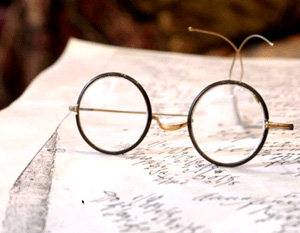Penning stories of loss, and fulfillment
 It’s been nearly four decades since Ved Mehta, distinguished author and scholar, penned Daddyji, a “serendipitous” biographical portrait of his father. Mehta was 38 then and the book was the first in a collective of autobiographies, Continents of Exile.
It’s been nearly four decades since Ved Mehta, distinguished author and scholar, penned Daddyji, a “serendipitous” biographical portrait of his father. Mehta was 38 then and the book was the first in a collective of autobiographies, Continents of Exile.
Mehta (75) has since completed all 12 in that series the last of which, The Red Letters, ends where it began, with a portrait of his father, telling a different, more emotionally tangled tale. That was in 2004, but Mehta has to hark back to the first installment, as Daddyji and the one on his mother, Mamaji, release in India this week, published by Roli Books.
“I’m happy about it. For years I wouldn’t give Indian publishers rights to my books. Roli has promised to publish all 12 over the next three or four years,” said Mehta, who has returned the country after six years.
America has been Mehta’s home since 1949, when, aged 15, he was admitted to the Arkansas School for the Blind. Mehta’s acute academic prowess took him from Oxford to Harvard and finally as a staffer at The New Yorker magazine, “the most idyllic place to work at”, where he spent 33 years writing on Indian politics, Oxford philosophy and Christian theology.
“Daddyji happened when my father visited me in New York. We weren’t very close but over several meetings I’d ask him to narrate the tales of his past, all of which I’d heard before. His story- telling was arresting,” said Mehta, impeccably attired in his New York clothes.
Mamaji, Mehta wrote seven years later in 1979. His relationship with his mother was rather turbulent, unlike that with his “western-thinking” dad. “She couldn’t accept me losing my sight when I turned four. She kept hoping for a miracle,” Mehta said. Her story was also harder to elicit. “She’d have nothing to say except that she was a Hindu stree. She only opened up when no one was around.”
Both stories Mehta admits were equally compelling. “My father’s was about a village boy who left for London to become a respected doctor and mother’s about a shehri (citydweller) who hadn’t studied beyond class 4 marrying this sophisticated man,” said Mehta.
Between the two, Mehta’s prolific body of work had hoisted him as a seminal presence in the New York literary scene.
Loss was the underlining theme of his 12 chronological family saga books. “The themes were about the loss of sight, loss of home in Lahore after the Partition, my home in America when I left for Oxford, loss of four girls who I was intimately involved with. But in that story is also one of fulfillment. I have two daughters now.”
After 26 works of non-fiction Mehta, is contemplating a novel as his next. “I can’t say more about that, it dissipates the very energy I need to write it.”